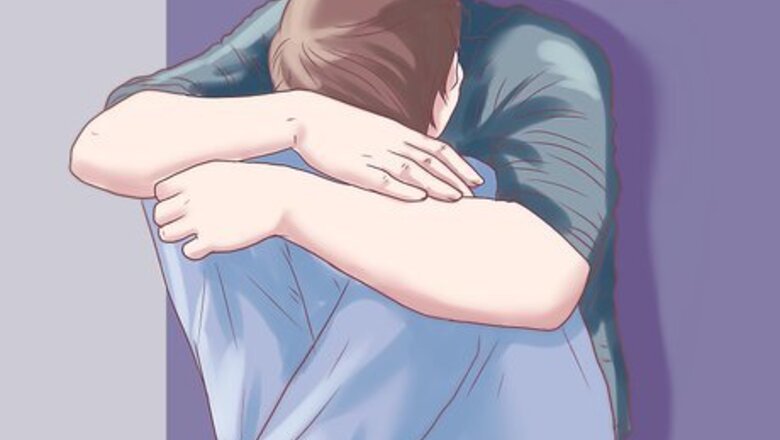
views
- Slump your shoulders forward and gaze into the distance like you're lost in thought.
- Sigh around other people. If they ask how you're doing, say, "I'm okay" or "I don't know, alright I guess."
- Act like you're not hungry. Tell other people you're tired and don't feel like doing anything.
Physical Actions
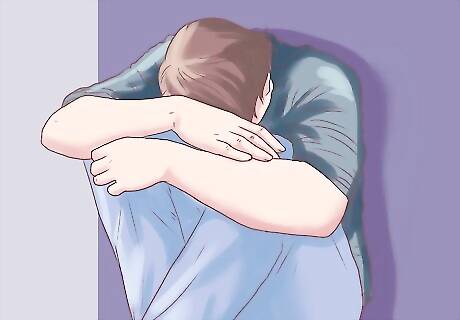
Keep your body slumped downward. A bent and bowed posture is a common sign of sadness. To convey sadness using your body, you might try things like: Slumping your shoulders forward Bending your torso downward Sitting with your torso bent toward your knees
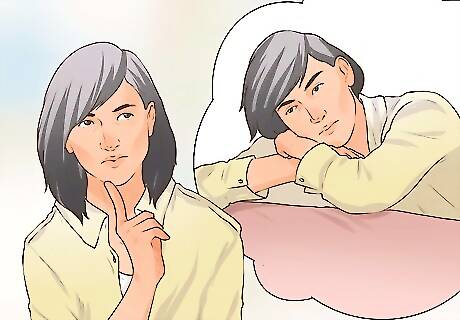
Gaze at nothing in particular. A vacant or distant expression is often interpreted as a sign of sadness or of being lost in thought. In particular, if you keep your gaze pointed downward, others might think you are sad.
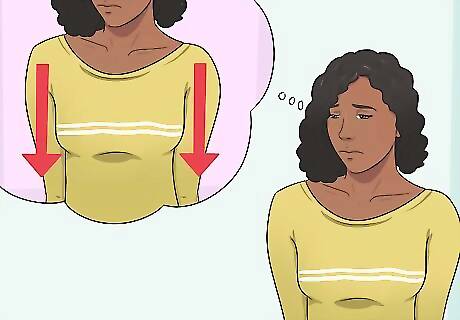
Keep your eyelids lowered or closed. Drooping, lowered, or closed eyelids are part of many facial expressions that indicate sadness. If you want to pretend you are sad by using this method, it is best to combine it with other physical signs of sadness, since lowering your eyelids alone might just make it seem like you are sleepy or squinting.
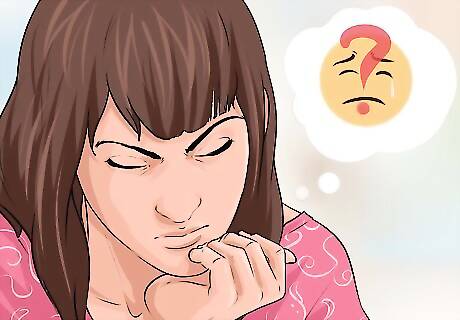
Furrow your brow. A tensed, tightened brow is a classic sign of being lost in thought. Studies also show that it is often combined with other physical signs of sadness. This technique works especially well when combined with others, such as gazing downward.
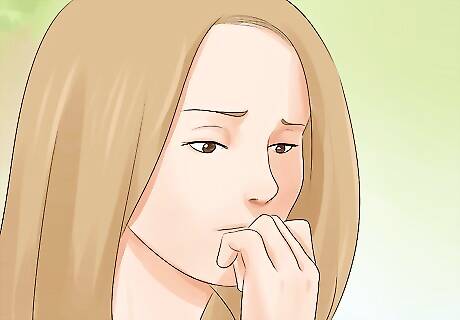
Frown. A downturned brow can be a sign of sadness as well as one of displeasure. Frowning too intensely, however, can make it look like you are scowling or angry. Use this technique sparingly and in combination with other physical signs of sadness.
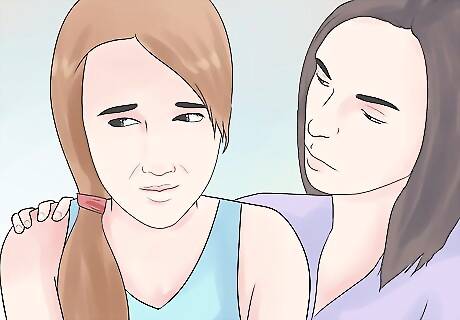
Pout your lips. You can also show sadness with your mouth by sticking your lip outwards. A pouting expression can show that a person is upset for a variety of reasons. When it is combined with other techniques, such as gazing downwards or slumping your body, it is sure to make others believe you are sad.
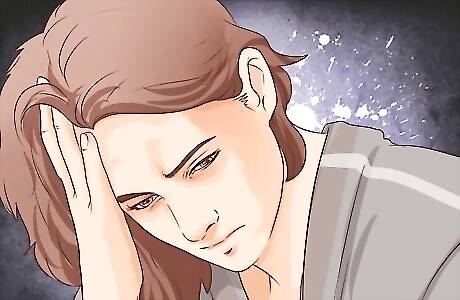
Touch your face. Headaches are a common sign of depression or sadness. If you want to make others believe that you are sad, you can try to pretend that you have a headache. This can be easily done by touching or rubbing your face, especially your forehead.
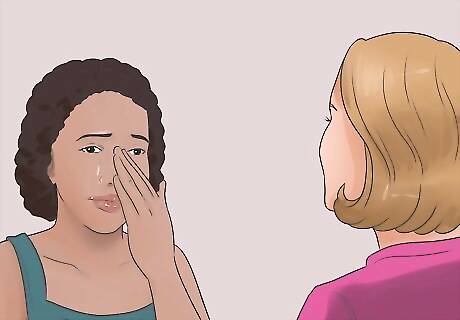
Cry. Shedding tears is a typical reaction to feeling sad. If you can cry at will, other people might easily believe that you are upset. However, it can be difficult to cry convincingly, since most people can tell the difference between real and pretend expressions of sadness. Only attempt this method if you are skilled at appearing to shed real tears. On the other hand, you might be able to use the element of surprise to your advantage. If you can start crying suddenly, you might shock people and make them believe that you are genuinely sad.
Social Cues
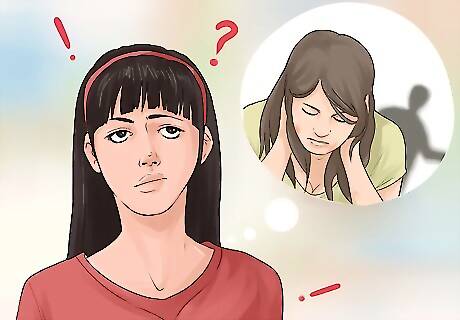
Have an objective. Well-trained actors don’t “play sad,” since this can come across as melodramatic and staged. Actors that want to convey sadness convincingly try to play an objective. For instance, if an actor is trying to look sad because his grandmother died, he will focus on showing how much he cared about and misses her, rather than just shedding lots of tears. If you are trying to act sad, you can borrow this method. For instance: If you want to act sad so that someone will realize that they hurt you, think about how the person upset you, in addition to using physical signs to convey sadness. If you want to act sad so that people will leave you alone, focus your thoughts on why it is that you genuinely want solitude.
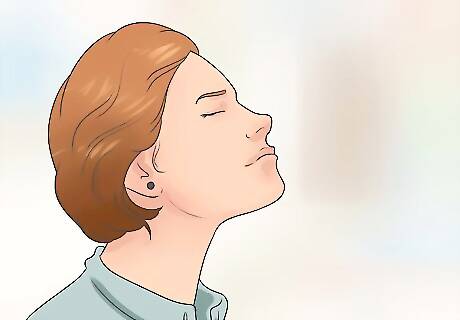
Sigh. Commonly recognized as an expression of grief, sighing around other people will be taken as a sign of sadness. Don’t overdo it by sighing too loudly or too frequently, however. Try sighing quietly as you gaze downward, especially when you know other people are looking at you. When someone asks you a question like “How’s it going?,” sigh and look downward before responding with something like “I don’t know,” or “Not great.”
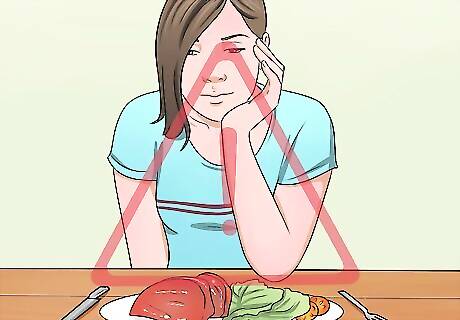
Act like you are not hungry. Loss of appetite frequently accompanies sadness or grief. If you want others to believe that you are sad, try not eating much when you are around them. You can also say things like “I’m just not hungry today,” and listlessly poke at your food.
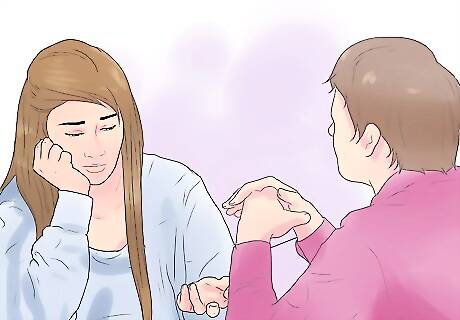
Tell others you are tired and weak. Being sad or depressed can make a person feel fatigued or exhausted. If you constantly tell other people that you are tired or have no energy, they might start to believe that you are sad. Try saying things like: “I don’t know what’s wrong with me. I just don’t have any energy today.” “I just didn’t want to get out of bed today.” “I want to just crawl under a blanket and go back to sleep.”

Pretend to have lost interest in things. When a person loses interest in activities or other things he or she previously enjoyed, it might be a sign of sadness. If you want to convince others that you are sad, act like you no longer care about some things. For instance: If your friends always go out to the movies on the weekend, tell them you just don’t feel like it this week. If people show you something they expect you to find fun or interesting, like a new cat video, act like you just don’t care. If you are known as a big fan of something, like a sport, video game, or music, announce that you’ve lost interest in it.
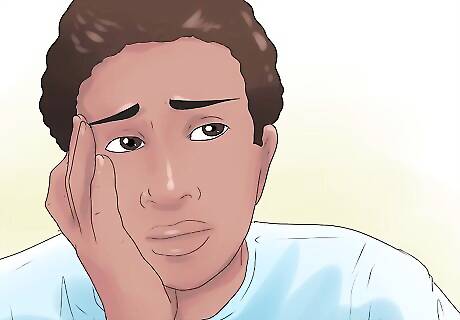
Act absent minded. When people are sad or depressed, they may have unusual difficulty concentrating. To pretend you are sad, act like you are lost in thought or forgetful. For instance, when someone comes up to talk to you, don’t look at the person. When he or she starts talking to you, don’t respond right away. Keep looking away, and after a few seconds look up at the person and say something like “What was that?” or “I’m sorry, I was lost in thought—what did you say?”
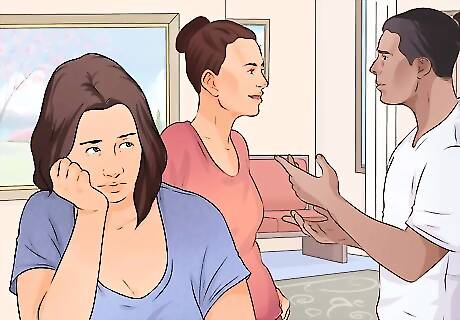
Spend lots of time alone. Withdrawal from other people is common when someone is sad. If you want to convince others that you are sad, you will have to spend some time separated from them. It’s not hard to convey sadness this way, even when you can’t really get away from people. You can try: Walking alone behind other people when you have to travel in a group. Going into another room by yourself when you are at home with others. Standing in a corner by yourself when you have to be indoors with others. Walking away from other people without saying anything to any of them. Not responding when other people try to communicate with you by text, email, phone, or in any other way.




















Comments
0 comment